10 Effective Home Remedies For Pyorrhea (Gum Disease)
Simple and natural ingredients that can keep your dental and oral hygiene in check.

Image: ShutterStock
Pyorrhea is a bacteria-caused dental ailment. In simple terms, it is an inflammation of the gums that primarily affects the membrane that surrounds the roots of the teeth. Though pyorrhea is a common and painful problem that plagues many people, home remedies for pyorrhea are easy and effective enough to deal with it. However, if left untreated, pyorrhea leads to pus leakage, tooth loosening, and tooth decay. Bleeding when brushing, sore gums, foul smell, pain while eating, and swollen, red, or recessed gums are all classic symptoms of pyorrhea, also known as periodontitis (1).
The formation of bacterial plaque, which is usually caused by poor dental hygiene, is the leading cause of pyorrhoea. Other factors could include inappropriate or rushed brushing, incorrect use of toothpicks, untreated gum injuries, deposition of food particles, and unhealthy eating habits. They can all heavily influence your dental care. Excess sugar and other unhealthy meals can lead to an increase in the number of germs in your mouth, resulting in pyorrhea. Deficiencies in some vitamins or minerals might also act as triggers. The good news is that it is a minor ailment that you can easily treat with a few simple home remedies listed below. Keep scrolling to know more!
 Quick Tip
Quick TipIn This Article
Symptoms Of Pyorrhea
Here is a list of symptoms of pyorrhea (1):
- Gum Inflammation
Your gums may become red, swollen, and tender. They may also bleed easily when brushing and flossing. - Receding Gums
The gum line may pull away from the teeth, exposing the roots and increasing the risk of tooth migration and cavities. - Persistent Bad Breath
This is common due to the presence of bacteria in the infected gum pockets. - Pus Formation
Pus may develop between the teeth and gums if the infection is severe or left untreated. - Loose Tooth
The weakening of the supporting bone and tissues may lead to a loose tooth. - Pain
Discomfort or pain in the gums especially when chewing. - Sensitivity
You may experience increased tooth and gum sensitivity when exposed to hot or cold food or drinks.
If left untreated, pyorrhea can lead to severe dental issues and may even increase the risk of developing diseases like diabetes and cancer in the lungs, pancreas, blood, and kidneys (1). So, it is important to recognize and address these symptoms on priority.
Now that you know about the symptoms to look out for, scroll down for a list of home remedies to help manage pyorrhea.
Key Takeaways
- Pyorrhea or periodontitis is identified with symptoms like foul smell, pain while eating, bleeding, and swelling of the gums.
- Regularly massaging the gums with lemon juice or mustard oil may help treat pyorrhea.
- Fruits like guava, orange, and banana can help stop bleeding and heal gums.
- Make a tooth powder using pomegranate rind, alum, black pepper, and Epsom salt to prevent pyorrhea.
- Onion or its seed placed at the gums can help reduce inflammation.
Pyorrhea Treatment with Home Remedies:
1. Lemon Juice
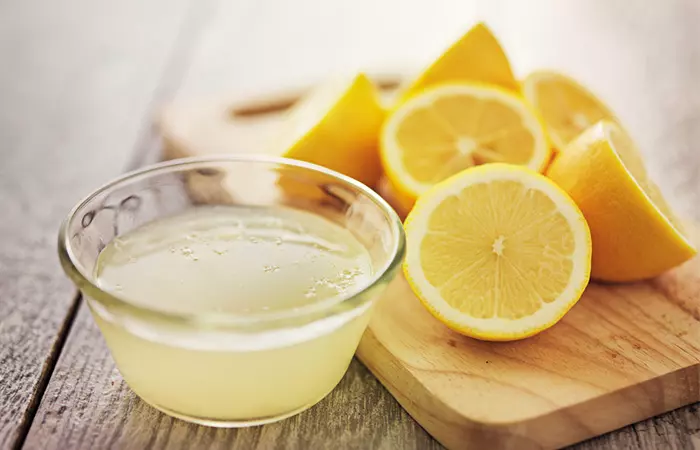
Raw lemon juice may be effective in the treatment of pyorrhoea (2). It is also a great home remedy for swollen gums. You can take some lemon juice on your fingertips and gently massage it all over your gums. It can give you a burning sensation in the beginning but will eventually stop the bleeding. Regular use can definitely improve the condition of your gums and teeth.
2. Mustard Oil
Massaging your gums with mustard oil is also effective in treating pyorrhoea (3). After brushing your teeth, you can take some mustard oil and add a pinch of salt to it. Massage your gums with this mixture using the tip of your forefinger. In case of excess pain in the gums, you can soak an earbud or cotton ball in this mixture and gently massage your gums. You can also add aloe vera gel and a pinch of turmeric to this mixture as they contain antimicrobial and antifungal properties, respectively.
3. Guava
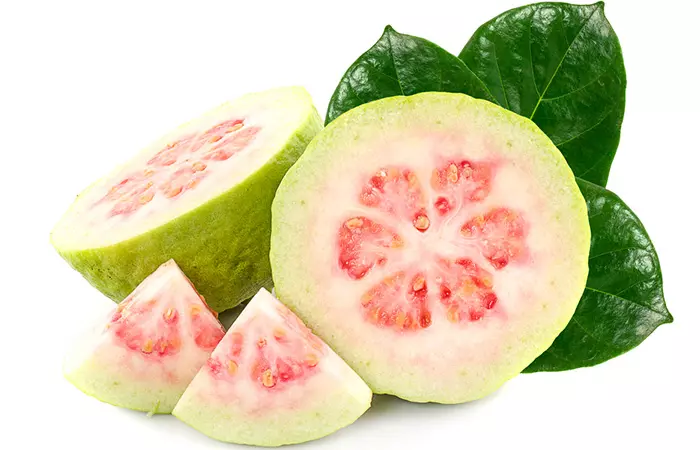
Being a rich source of Vitamin C, guava is considered an excellent tonic for teeth. Chewing unripe guava fruit sprinkled with a pinch of salt is also a great home remedy for pyorrhoea. One can also consider chewing the tender leaves of the guava fruit. This will keep the teeth healthy and stop bleeding gums (4).
4. Alum and Pomegranate Rind
This is considered to be one of the effective herbal remedies to cure pyorrhoea. Just take 500 grams of dried rinds of pomegranate and 10 grams each of alum (phitkari), black pepper and Epsom salt (sendha namak). Grind these ingredients to form a fine powder and sieve it. Clean your teeth twice a day with this powder regularly for beneficial results. You can also try salt water rinse, apple cider vinegar rinse, or chamomile tea rinse as they contain antimicrobial properties that help treat gum infections.
5. Carrot and Spinach
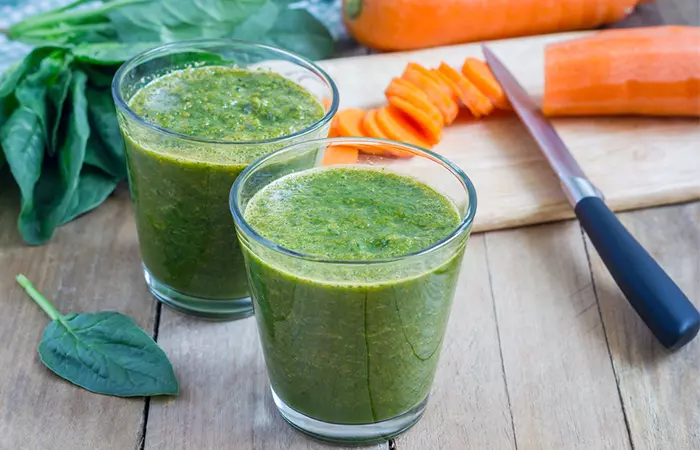
Carrot and spinach are great for oral hygiene (5), (6). You can prepare a soup of carrot and spinach and have it as part of your diet. Alternatively, you can consider mixing equal quantities of carrot and spinach juice and drinking this mixture every day for best results.
6. Sesame Oil
Gargling with sesame oil is also beneficial in treating pyorrhoea. Fill your mouth with sesame oil and hold on for around 10 minutes. Swish the oil inside your mouth for a few seconds and then spit it out. This will soothe your gums and stop gum bleeding. This is one of the best home remedies for pyorrhea that is also effective in treating other dental problems (7).
7. Castor Oil, Camphor, And Honey
This is one of the best home remedies for gum pain caused by Pyorrhea. Prepare a paste by blending 200 ml castor oil, 100 ml honey, and 5 grams of camphor. Dip a twig of Neem in this paste and rub this mixture on your teeth and gums. Consider doing this daily for best results. You can also use coconut oil, clove oil, tea tree oil, or essential oils, such as peppermint oil instead of castor oil.
8. Orange and Banana Peels
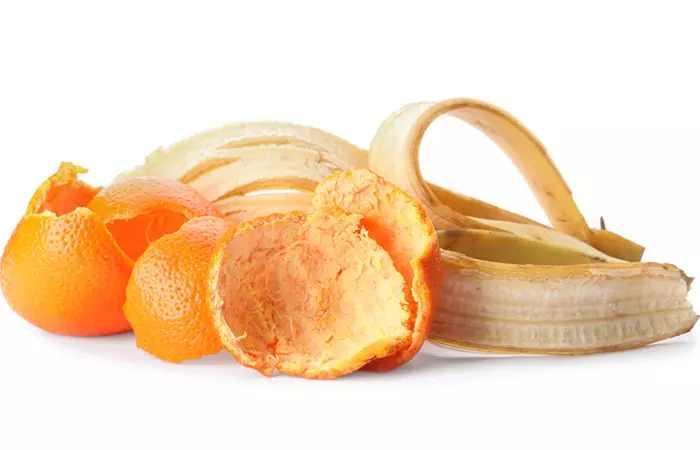
You can peel off the skin of an orange and rub it on your gums to treat pyorrhoea. Doing this can smear your teeth with Vitamin C, which may stop bleeding (8). The inner fibrous side of the banana peel is also effective in healing the receding gums. The inner threadlike peel of the banana helps in maintaining oral health (9). So make sure to eat the banana with this threadlike peel.
9. Banyan Bark
Boil some pieces of banyan bark in a vessel filled with water for about half an hour. Allow it to cool for a while. Strain and filter this water and gargle with it. This is extremely effective in curing pyorrhoea.
10. Onion
Onion may be effective in the treatment of pyorrhoea due to its anti-protozoal activity (10). All you need to do is keep a piece of onion or onion seed i.e. kalonji in your mouth, below your teeth. You can also try chewing on a peeled clove of garlic. Leave it till the saliva starts dripping from your mouth. This will help in reducing inflammation of the gums.
Note: You can also apply a mixture of 2 parts of baking soda and 1 part of hydrogen peroxide on your teeth for controlling gum inflammation and a whitening effect.
 Quick Tip
Quick TipIf pyorrhea symptoms persist or worsen even after using these remedies, consult a dentist immediately to prevent further damage. An early intervention can help treat the condition effectively and preserve your teeth and gums.
And if you want to prevent it from occurring again, you can try some preventive tips as listed below..
How To Prevent Pyorrhea
Here are some preventive measures that can help you keep your gums healthy and prevent pyorrhea:
- Brush teeth twice a day and floss once daily to maintain good oral hygiene.
- You may also use an antiseptic mouthwash to reduce bacteria that may cause gum disease.
- Visit your dentist at least twice a year for professional cleanings.
- Quit smoking and limit the consumption of sugary foods and drinks that may lead to plaque buildup.
Infographic: Tips To Prevent Pyorrhea
Pyorrhea is a dental condition that involves inflammation of the gums. It can be annoying and painful. While several home remedies provide relief, we can follow some simple tips to avoid developing this painful condition in the first place.
Check out the infographic below to know more! Illustration: StyleCraze Design Team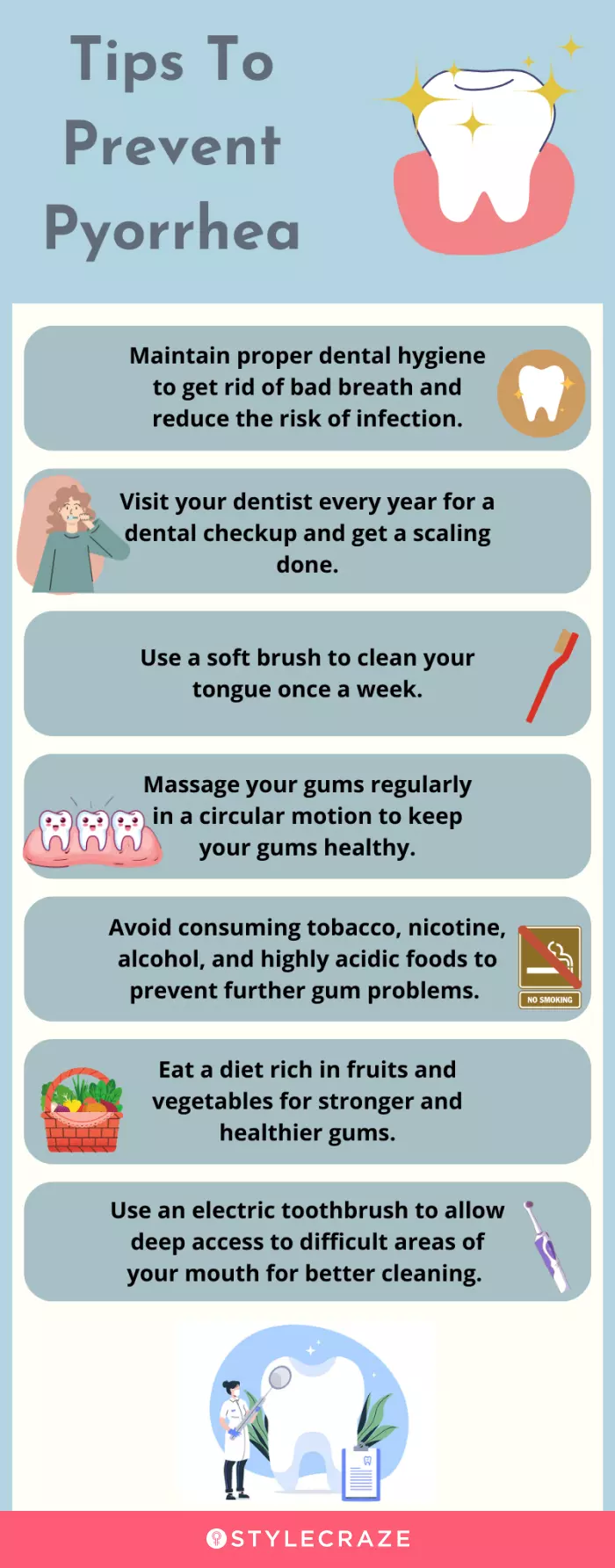
Pyorrhea, also known as periodontitis, is an inflammatory dental condition caused due to bacterial buildup along the gums and membrane linings of the teeth. Poor dental hygiene and a diet high in sugars can trigger this condition. Pyorrhea treatment at home involves the use of readily available, natural remedies, such as guava, Epsom salt, mustard oil, pomegranate rind, etc. You need to follow the remedies correctly and for a few days for noticeable results. In case symptoms such as bleeding, pain and foul breath persist or get worse, get in touch with your medical healthcare provider.
Frequently Asked Questions
Can diet help manage pyorrhea?
Yes, a diet rich in vitamins B, C, E, and K, calcium, zinc, and magnesium may help strengthen gums and accelerate healing to help manage pyorrhea (12). Some foods rich in these nutrients include leafy green vegetables, yogurt, nuts, seeds, fruits, and eggs.
Is pyorrhea contagious?
Yes, pyorrhea is contagious as the bacteria present in the mouth may be passed on to another by sharing drinks or through saliva. However, not everyone who comes in contact with the pathogen develops pyorrhea. Prolonged exposure over several months and improper oral hygiene put individuals at risk of developing pyorrhea.
What is the difference between gingivitis and pyorrhea?
Gingivitis refers to the inflammation of the gums and usually precedes pyorrhea (also called periodontitis), a more serious condition involving inflammation of the hard tissues surrounding the teeth.
Can pyorrhea be cured permanently?
Pyorrhea can be cured when treatment begins at its early stages.
Which toothpaste is best for pyorrhea?
Any Medicated toothpaste formulated with antimicrobials and other ingredients that fight infection and gum disease is good for pyorrhea. For specific recommendations, consult your dentist.
Illustration: Effective Home Remedies For Pyorrhea (Gum Disease)
_illustration.jpg.webp)
Image: Dall·E/StyleCraze Design Team
Learn about Pyorrhea, its symptoms, and preventive measures for gum disease in this informative video. Take control of your oral health and watch now for valuable insights and home remedies.
References
Articles on StyleCraze are backed by verified information from peer-reviewed and academic research papers, reputed organizations, research institutions, and medical associations to ensure accuracy and relevance. Read our editorial policy to learn more.
- Periodontitis and systemic diseases A literature review
https://www.ncbi.nlm.nih.gov/pmc/articles/PMC3590713/ - Efficacy of citric acid on periodontal disease
https://www.researchgate.net/publication/332849748_Efficacy_of_citric_acid_on_periodontal_disease - To Study the Beneficial Effect of Mustard Oil and Salt Massaging With Oral Prophylaxis in Patients With Gum Diseases
https://clinicaltrials.gov/study/NCT02638740 - Psidium guajava A review on its potential as an adjunct in treating periodontal disease
https://www.ncbi.nlm.nih.gov/pmc/articles/PMC4127827/ - Spinach or carrots can supply significant amounts of vitamin A as assessed by feeding with intrinsically deuterated vegetables
https://www.researchgate.net/publication/7554506_Spinach_or_carrots_can_supply_significant_amounts_of_vitamin_A_as_assessed_by_feeding_with_intrinsically_deuterated_vegetables - Chapter 6: Vitamins and Oral Health
https://pubmed.ncbi.nlm.nih.gov/31940621/ - Effect of oil pulling with sesame oil on plaque-induced gingivitis: a microbiological study
https://www.researchgate.net/publication/303837942_Effect_of_oil_pulling_with_sesame_oil_on_plaque-induced_gingivitis_a_microbiological_study - The Relationship between Vitamin C and Periodontal Diseases: A Systematic Review
https://www.ncbi.nlm.nih.gov/pmc/articles/PMC6678404/ - Detection of antimicrobial activity of banana peel (Musa paradisiaca L.) on Porphyromonas gingivalis and Aggregatibacter actinomycetemcomitans: An in vitro study
https://www.ncbi.nlm.nih.gov/pmc/articles/PMC4678547/ - In-Vitro the Anti-Protozoal Activity of Onions Extract (Allium Cepa) and Metronidazole in Entamoebagingivalis Which Cultured in Tysgm-9 Medium
https://www.researchgate.net/publication/327756238_In-Vitro_the_Anti-Protozoal_Activity_of_Onions_Extract_Allium_Cepa_and_Metronidazole_in_Entamoebagingivalis_Which_Cultured_in_Tysgm-9_Medium - Amla: A boon for Periodontal health
https://www.researchgate.net/publication/334588068_Amla_A_boon_for_Periodontal_health - The role of nutrition in periodontal health: an update
https://www.ncbi.nlm.nih.gov/pmc/articles/PMC5037517/
Read full bio of Dr. Saba
Read full bio of Kushneet Kukreja
Read full bio of Arshiya Syeda
Read full bio of Dipti Sharma





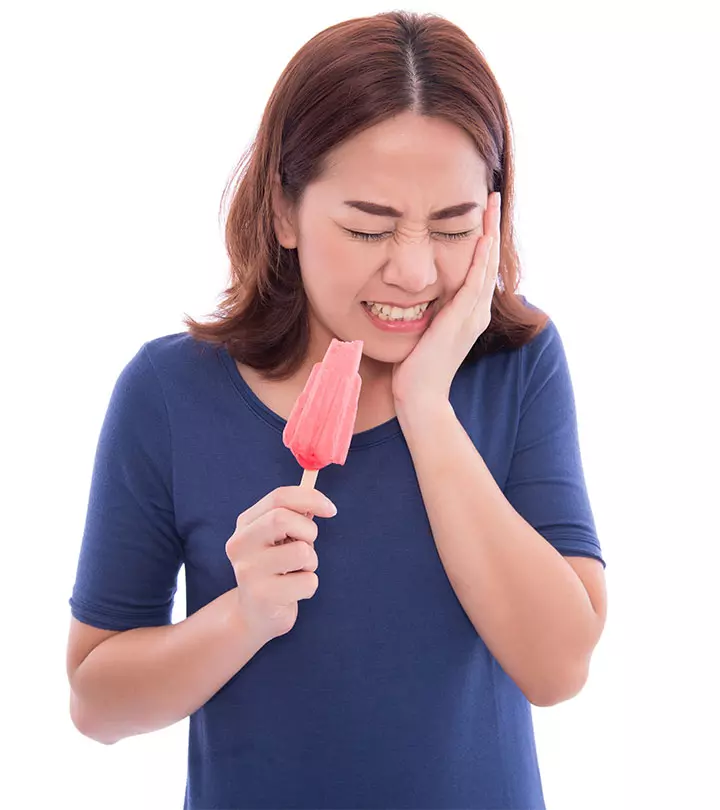
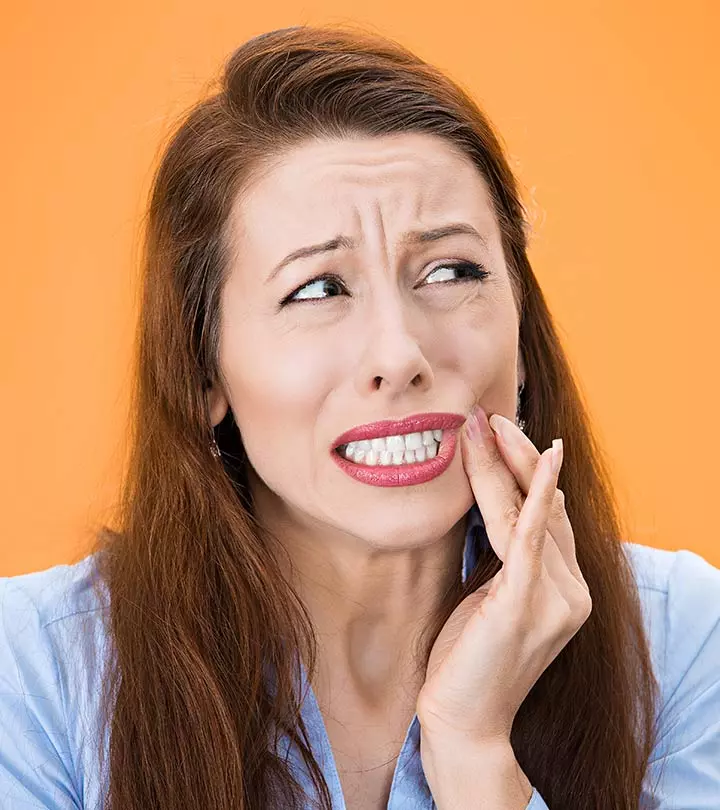
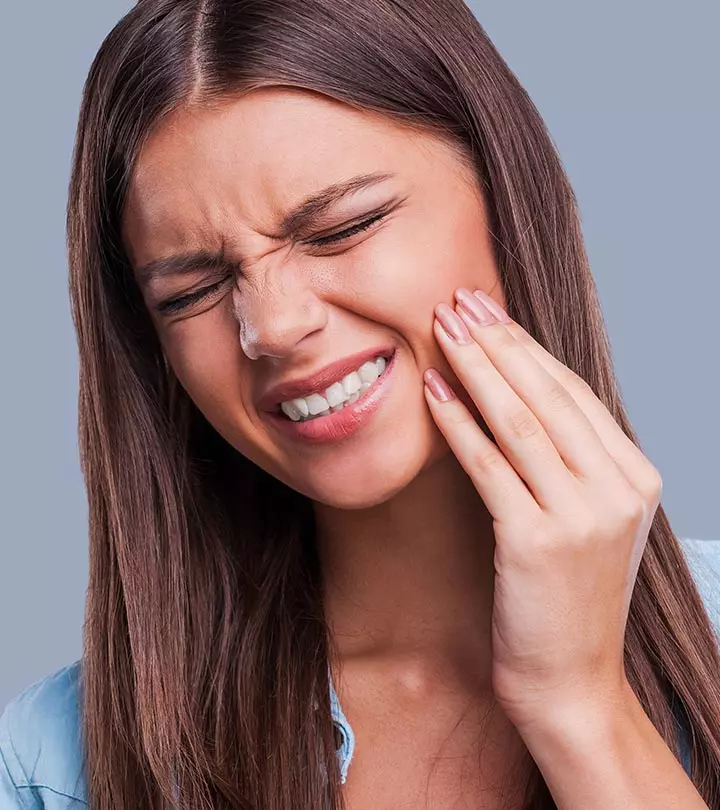

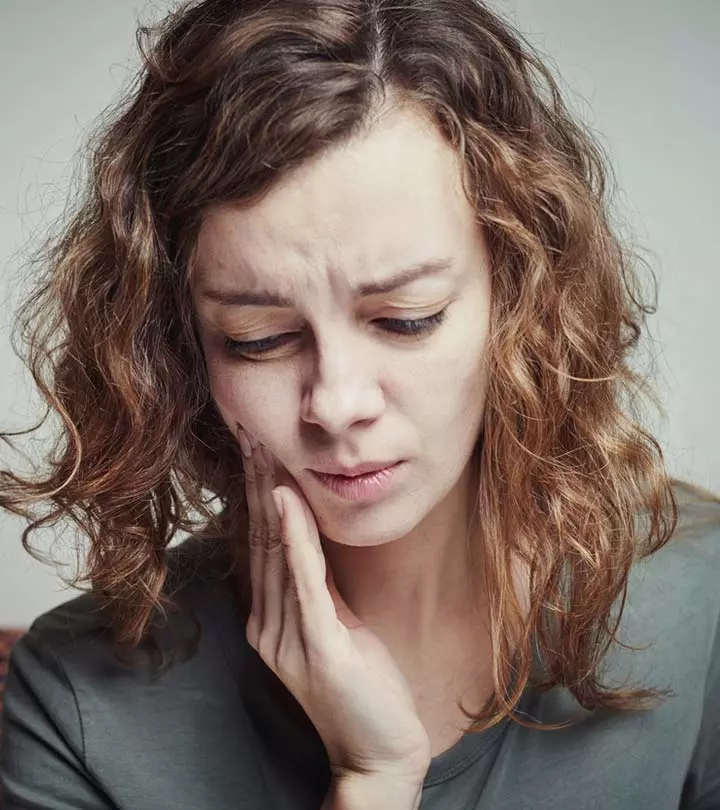


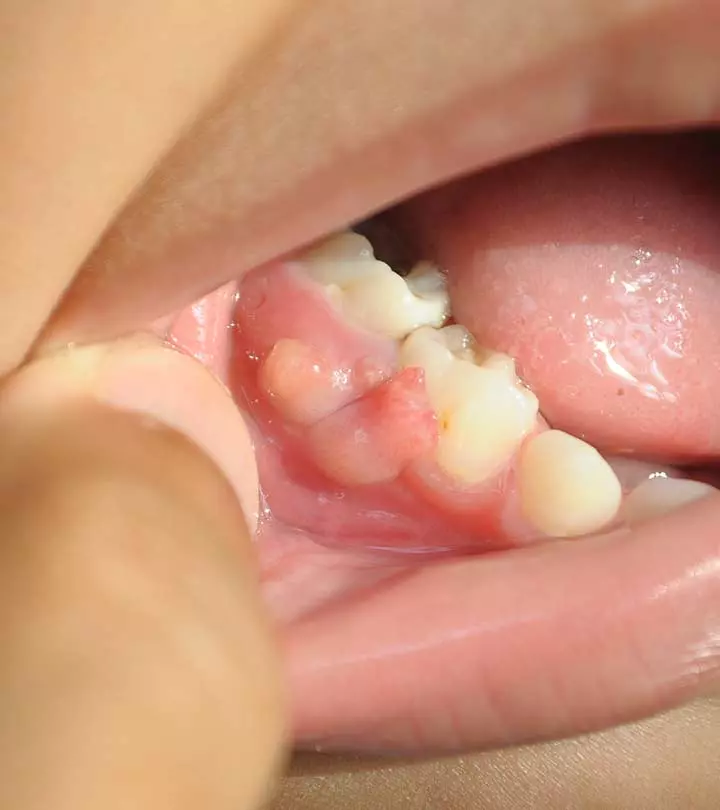

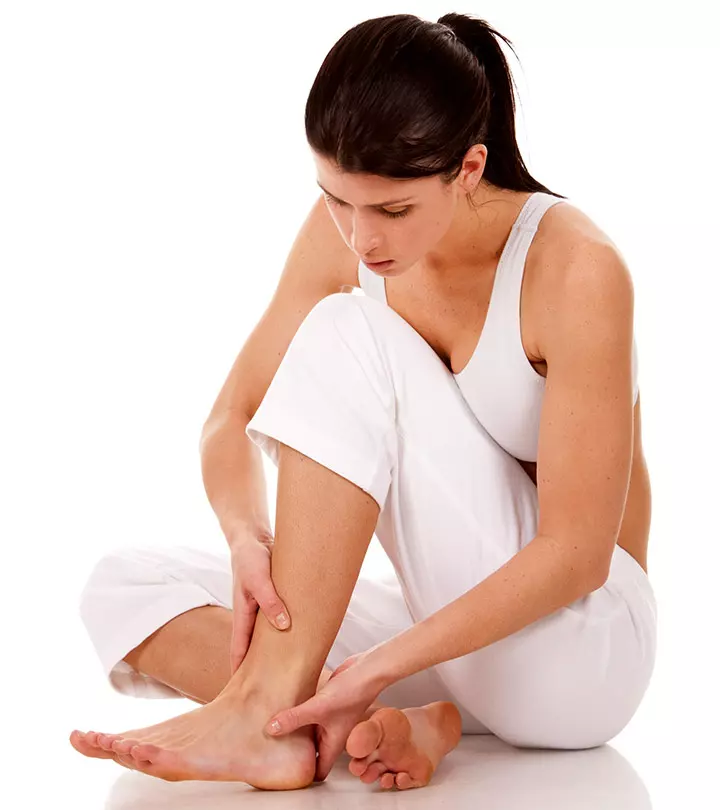

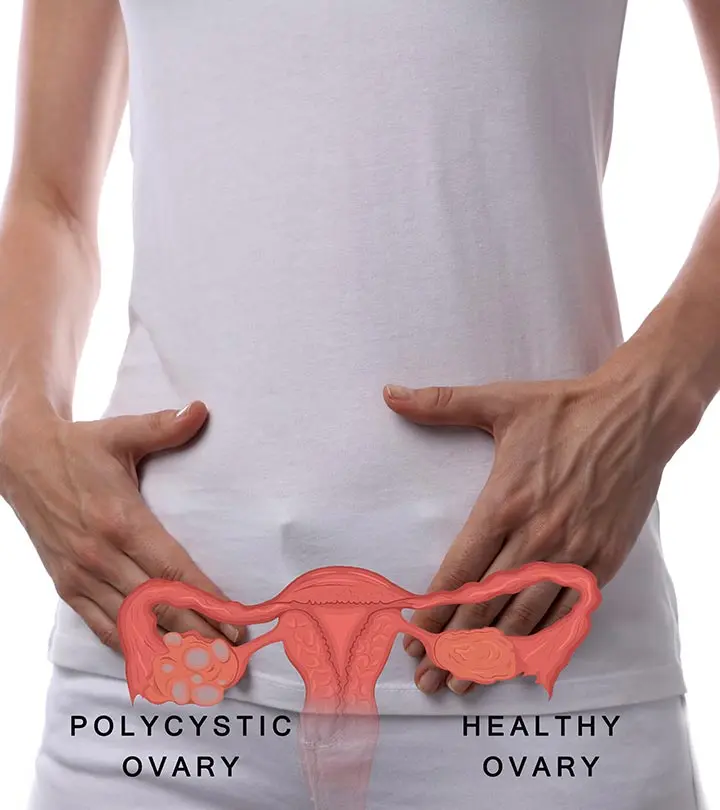







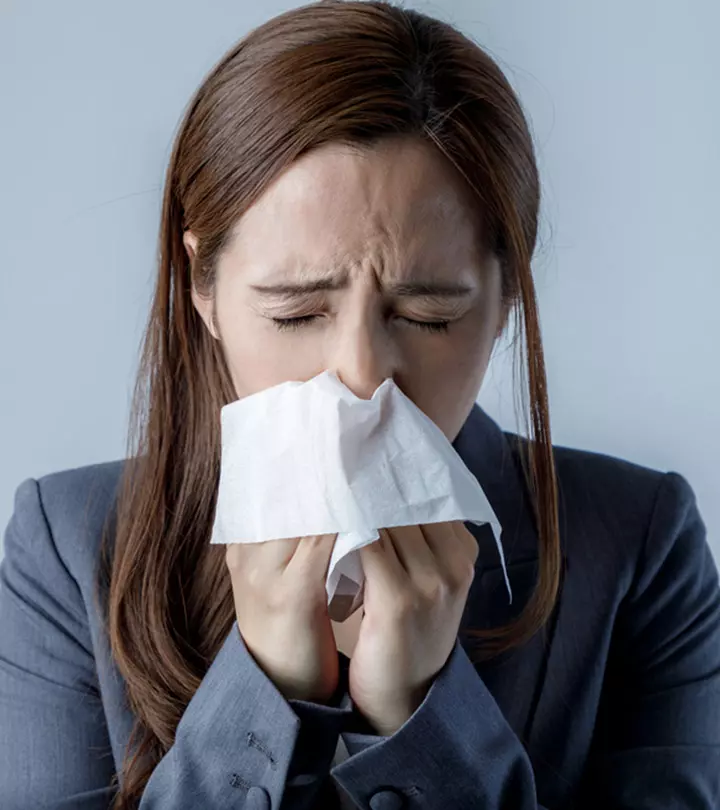
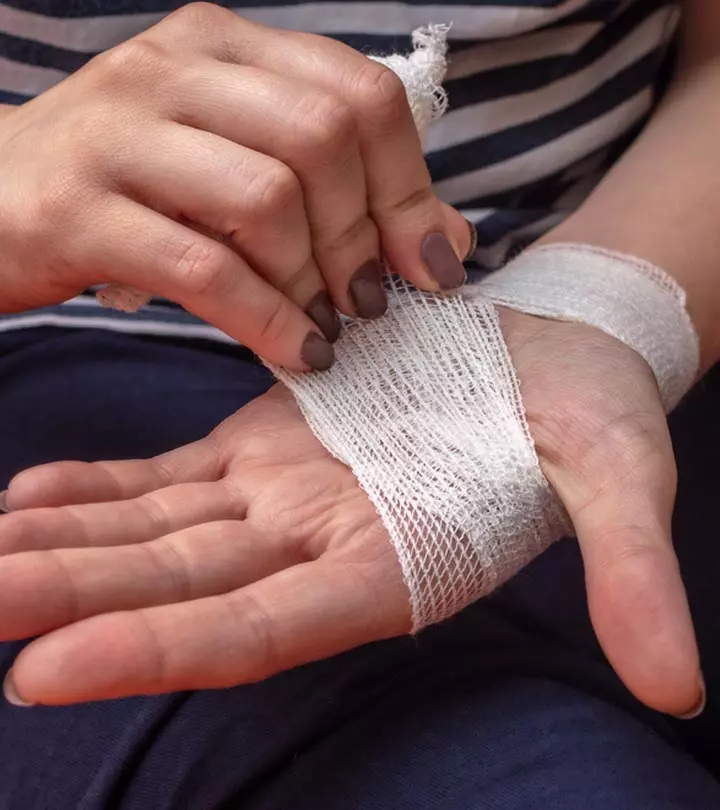
Community Experiences
Join the conversation and become a part of our empowering community! Share your stories, experiences, and insights to connect with other beauty, lifestyle, and health enthusiasts.